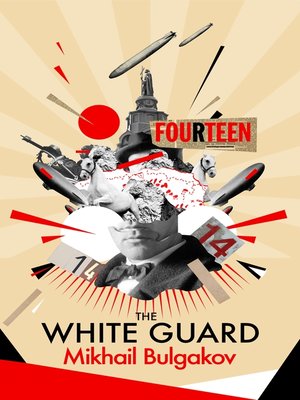
Sign up to save your library
With an OverDrive account, you can save your favorite libraries for at-a-glance information about availability. Find out more about OverDrive accounts.
Find this title in Libby, the library reading app by OverDrive.



Search for a digital library with this title
Title found at these libraries:
| Library Name | Distance |
|---|---|
| Loading... |
Reds, Whites, German troops, and Ukrainian nationalists battle for control of the city as the war becomes more tumultuous in Mikhail Bulgakob's debut novel, The White Guard.
The book is heavily autobiographical, drawing from the author's own experiences in Ukraine during the Russian Civil War—he witnessed ten of these changes of government himself. Told from alternating points of view and taking an unusual angle in the conflict between Russian Whites (with whom the Turbins identify) and Ukrainian nationalists, The White Guard elegantly portrays the chaos of a civil war in which there is no good or evil, only loyalty to one's friends, family, and one's convictions.
The White Guard first appeared in serial form in 1925 in Rossiya, a Soviet-era literary journal. The journal was closed down before the story was completed, and The White Guard was not reprinted in Russia until 1966. What was published before the shutdown was so popular, however, that Bulgakov was urged to rewrite the story for the stage, which he did in 1926 under the name The Days of the Turbins. The stage version downplayed the original's anti-Communist sentiments, and was met with widespread acclaim. The production ran from 1926 to 1941, saw nearly a thousand performances, and found an unlikely fan in Soviet dictator Stalin, though Bulgakov continued to be harassed by the press and by Stalin's authorities for the rest of his career.
The Alma Classics edition of The White Guard is translated by Roger Cockrell with the authorization of the Bulgakov Estate and Andrew Nurnberg Associates. Roger Cockrell was previously the Head of the Department of Russian at the University of Exeter and has worked extensively on expert translations of Russian works including other Bulgakov works such as The Fatal Eggs. His translation reflects the clear, humorous, and profound language of the original with colloquial English idioms and phrasings. Readers without previous experience in Russian literature will find this translation to be accessible and fun, even though the subtext of Bulgakov's works is the murky, mysterious underbelly of Soviet culture.







